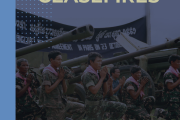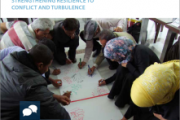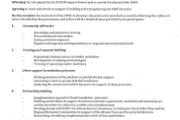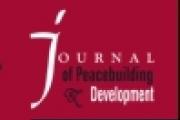Insider Mediation
Insider Mediation in Practice
Honduras
In the Moskitia region in Honduras, local insider mediators from indigenous communities have been trained to act as mediators to resolve land-related conflicts between the government and their communities. The Moskitia region is home to four indigenous groups. Historically, the Moskitia has been largely marginalized by the government. The territory is rich in natural resources, but the population faces substantial socio-economic challenges, such as high levels of poverty and low levels of education.
In the Moskitia, one of the most prominent conflict dynamics relates to land. Since 2012, land titles have been gradually transferred from state authorities to local indigenous governance structures (the so-called Territorial Councils). Yet, 'third parties' (Terceros) now own property titles and make use of the land in way that does not correspond to the traditional customs of the indigenous population. Indigenous people often do not have a way to address their grievances as local governance structures are weak. Taken together these aspects make for a context that is characterized by uncertainty and high levels of conflict.
In 2016, the Honduran government launched an 'Alliance for the Development of the Honduran Moskitia'. This alliance established an inter-institutional dialogue mechanism comprised of 'the 'Territorial Governance Platform' that facilitates so-called dialogue spaces (Mesas de Diálogo) between local indigenous communities and government representatives aiming to carry out sustainable development initiatives and address land issues. The insider mediators play a key role in the Platform and the dialogue spaces to ensure that the needs and concerns of indigenous people are adequately addressed.
Lesotho
Recent elections in Lesotho (2012, 2015 and 2017) did not produce a decisive winner due, in part, to 30 political parties involved. This led to a new trend of short-lived governments characterized by unstable coalitions and general insecurity that contributed to the perceived politicization of the country’s security services. Through its Heads of Churches, the Christian Council of Lesotho (CCL) first became involved in insider mediation in 2009 and have since been instrumental in supporting mediation and dialogue processes in the country. In 2017, the CCL helped create an environment for peaceful elections. The collapse of the coalition government and the return of the opposition leaders just months prior to the June elections made for a tense period. The CCL undertook consultations between political parties and secured an agreement for a face-to-face meeting of political party leaders to discuss the conduct of the elections. Skilful facilitation by the CCL allowed the parties to engage in dialogue on various issues, while also focusing on fostering a commitment to peaceful campaigning and adherence to the country’s Electoral Code of Conduct. Prayer breakfast sessions were organized with political leaders, which became an essential forum for airing and resolving numerous volatile issues that arose as the election neared. As a result of the CCL’s efforts, political parties agreed to violent free elections and also signed a commitment to prioritize fundamental national reforms after the elections.




